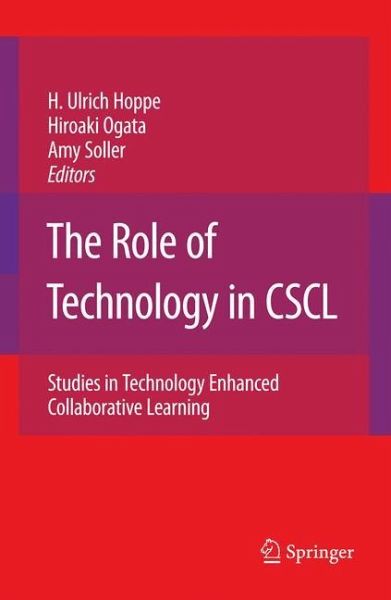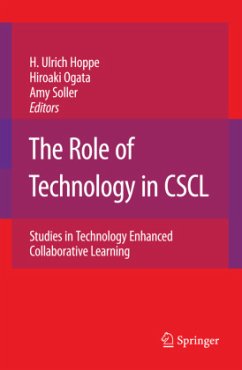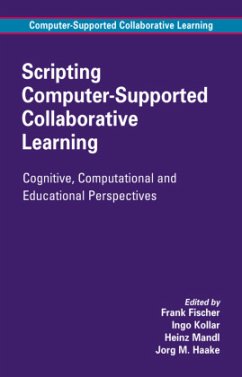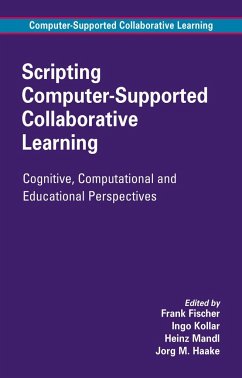
The Role of Technology in CSCL
Studies in Technology Enhanced Collaborative Learning
Herausgegeben: Hoppe, Ulrich H.; Ogata, H.; Soller, A.
Versandkostenfrei!
Versandfertig in 6-10 Tagen
76,99 €
inkl. MwSt.

PAYBACK Punkte
38 °P sammeln!
This book relates "new" information and communication technologies (ICT) to their specific teaching and learning functions, in particular how ICT is appropriated for and/or by educational or learning communities. We categorize consumer-oriented educational multimedia as established technologies, not of primary importance for innovative approaches to collaborative learning. Internet connections in schools and academic institutions are no longer new, though the learning culture originating from this technology may still lack a sufficiently rich definition. The technological "hot spots" of intere...
This book relates "new" information and communication technologies (ICT) to their specific teaching and learning functions, in particular how ICT is appropriated for and/or by educational or learning communities. We categorize consumer-oriented educational multimedia as established technologies, not of primary importance for innovative approaches to collaborative learning. Internet connections in schools and academic institutions are no longer new, though the learning culture originating from this technology may still lack a sufficiently rich definition. The technological "hot spots" of interest in this book are in turn: groupware or multi-user technologies such as group archives or synchronous co-construction environments, embedded interactive technologies in the spirit of ubiquitous computing, and modeling tools based on rich representations.
Important features of these new technologies are: the move from individually oriented software tools to multi-user tools providing group awareness as well as facilities for the co-construction of knowledge; a definition of software use beyond a single piece of software towards multiple applications or tools which are not only technically interoperable but also task and role compliant in a social situation (social interoperability); high interactivity and creative potential with high productive activity and initiative on the part of the user (as opposed to the receptive scheme of usage of many educational multimedia applications); new kinds of peripherals in the spirit "of ubiquitous computing and augmented reality", which allow for redefining the borderline between physical action on the one hand and virtual or symbolic on the other.
Important features of these new technologies are: the move from individually oriented software tools to multi-user tools providing group awareness as well as facilities for the co-construction of knowledge; a definition of software use beyond a single piece of software towards multiple applications or tools which are not only technically interoperable but also task and role compliant in a social situation (social interoperability); high interactivity and creative potential with high productive activity and initiative on the part of the user (as opposed to the receptive scheme of usage of many educational multimedia applications); new kinds of peripherals in the spirit "of ubiquitous computing and augmented reality", which allow for redefining the borderline between physical action on the one hand and virtual or symbolic on the other.














